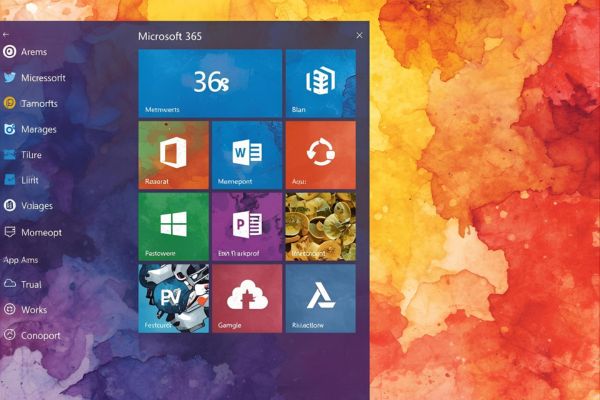Why SSL and Regular Backups Are Essential in 2025

Web site security is no longer a luxury in the age of the digital world. As cyberattacks continue to evolve and get more sophisticated and frequent, businesses and the owners of websites have to take the initiative in order to secure their data, their reputation, and customers. As we move deeper into website security 2025, two practices are essential: implementing SSL for website security 2025 and maintaining regular backups.
Whether you’re a small business owner, an e-commerce operator, or managing a personal blog, the tools and practices you choose to safeguard your website can mean smooth operations and devastating downtime. Explore why SSL and backups are critical this year and how to integrate them into your digital strategy.
Why SSL Matters More Than Ever in 2025
When you have observed a padlock icon next to the address bar in your browser that is a manifestation of the use of SSL.SSL (Secure Sockets Layer) encrypts data transmitted between a website and its visitors, ensuring sensitive information—passwords, credit card numbers, and personal details—remains safe from hackers.
As we enter 2025, SSL isn’t just a best practice—it’s mandatory for any website that values credibility and protection.
Benefits of SSL in 2025:
- Encryption of Data
- SSL makes all information between your site and your users encrypted. This is the frontline in an age where data breaches are the order of the day.
- Improved SEO Rankings
- Search engines like Google prioritize secure websites. Without SSL, your website may drop in search results, costing you visibility and traffic.
- Trust and Credibility
- Visitors are more cautious online than ever before. Seeing the padlock icon reassures them that they can safely interact with your website.
- Regulatory Compliance
- Many industries now require SSL to meet privacy regulations. Compliance isn’t optional for businesses handling sensitive data—it’s the law.
For business owners who may not have the technical expertise to install or manage certificates, partnering with experts in managed SSL services ensures your site remains protected without the hassle of manual renewals or configuration errors.
Secure Your Website with SSL: A Must-Have Step
If you’re still wondering why you should secure your website with SSL, consider this: browsers often flagged unsecured websites with “Not Secure” warnings. These alerts scare off potential customers and damage your credibility instantly.
By investing in an SSL security certificate, you’re safeguarding data and preserving your brand reputation. In 2025, users won’t tolerate websites without SSL—they’ll simply click away to a competitor who takes security seriously.
The Importance of Website Backups
Whereas the transmission of data in your website through the use of the SSL ensures your site is not an easy target of data theft, the backups form your safety net in case a disaster occurs. One cyberattack, crashing of a server, or an accidental deletion can destroy decades of work in minutes. The value of website backups in 2025 cannot be overestimated. Backups will enable you to bring your site online in a working state as quickly as possible which will alleviate the downtime and loss of revenue.
Why Backups Are Crucial:
- Protection Against Cyberattacks
- Ransomware and malware attacks are on the rise. If hackers gain control of your site, backups allow you to restore your data without paying hefty ransoms.
- Human Error
- Errors occur–be it the accidental loss of files or installation of a defective update. Backups provide you with the power to make reversals in real time.
- Hardware Failures
- Even with top-tier hosting, servers can fail. Backups ensure your site remains recoverable regardless of hardware issues.
- Business Continuity
- Lost time is equal to lost revenue and lost customer confidence. Trustworthy backups will help you to restore your site within minutes and continue operating your business without any problems.
Website Security 2025: The New Threat Landscape
In the year 2025, threats on the websites will be more advanced than ever. Hackers will utilize these vulnerabilities in AI-guided attacks, phishing and automated bots. Without effective defenses, any site could be a target.
Key trends shaping website security 2025 include:
- AI-Powered Cyberattacks: Hackers use artificial intelligence to find weak points faster than humans can respond.
- Ransomware Growth: Ransomware is also targeting small businesses more and more since they are less prone to superior defenses.
- Supply Chain Attacks: Compromised plugins, themes, or third-party integrations create new entry points for attackers.
- Data Privacy Concerns: Customers demand more transparency about protecting their data, making SSL and backups non-negotiable.
Since customers insist on greater transparency regarding the protection of their data, both SSL and backups are not negotiable.
How SSL and Backups Work Together
Although the purpose of the two activities is different, the combination of them forms a complete barrier to threats:
- SSL protects in-transit data, ensuring information isn’t intercepted during communication.
- Backups protect stored data, allowing recovery if your website is compromised, corrupted, or erased.
Think of SSL as a lock on your front door and backups as an insurance policy for everything inside your house. They are both vital in complete safety.
Best Practices for Website Security in 2025
To fully secure your website in 2025, follow these steps:
- Install SSL Properly
- Don’t just buy a certificate—make sure it’s correctly configured. Consider managed SSL services to handle installation, renewals, and monitoring.
- Schedule Automated Backups
- Have set backups run daily or weekly, and store in more than one place (cloud and offline).
- Test Backup Restorations
- A backup is only valuable if it works. Regularly test your restoration process to ensure data can be recovered quickly.
- Update Software Regularly
- Outdated plugins, themes, or CMS versions create security vulnerabilities. Keep everything updated.
- Use Strong Authentication
- Combine SSL and backups with secure logins, multi-factor authentication, and strong password policies.
- Work with Trusted Providers
- Select professionals that provide the protection of websites, be it a hosting service or even an issuer of the SSL.
Final Thoughts
Safeguarding your web site in 2025 involves an active strategy in the rapidly evolving online world. Website security,SSL 2025 is not optional anymore; it is required to be deemed credible, compliant, and trustworthy. The significance of website backups, similarly, can not be overestimated- they are your lifeline during cyberattack, server failure, or human mistakes. Not only are you preventing problems by implementing measures to protect your web site with an SSL and investing in quality backup systems, you are also creating resilience. For the best results, consider professional solutions like managed SSL services and trusted providers of SSL security certificates to ensure your site is protected against evolving threats.
In 2025, your website is more than just an online presence—it’s a vital asset. Protect it with the right tools, and you’ll safeguard your business, customers, and peace of mind.

